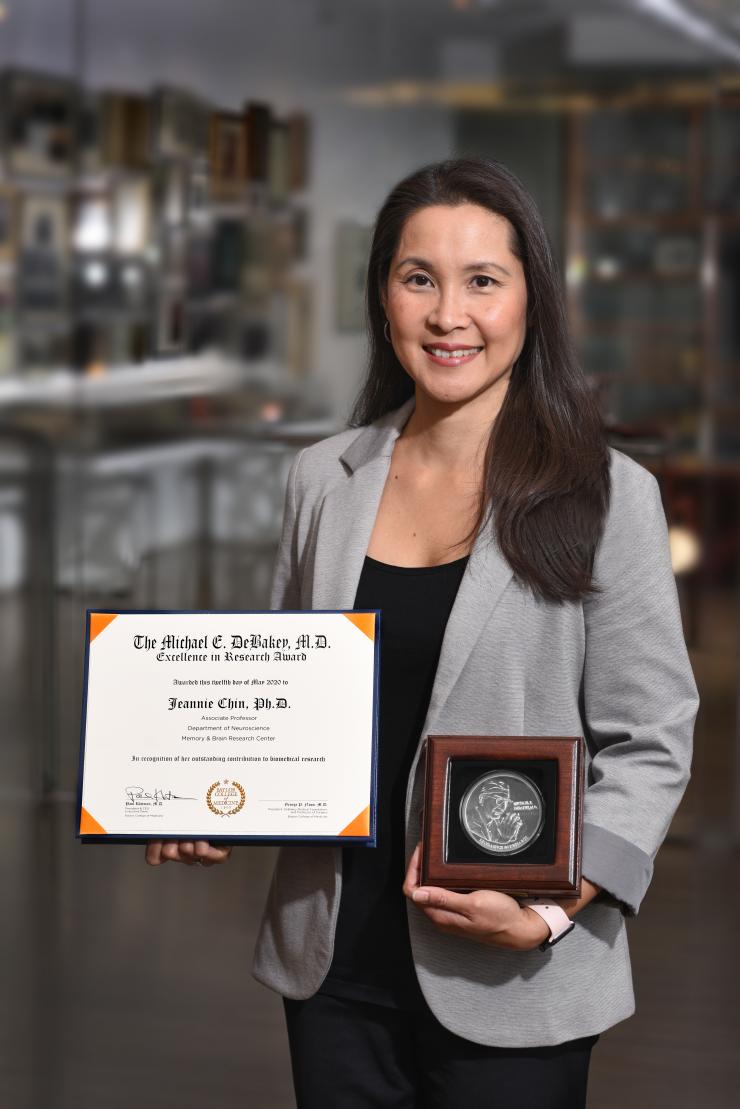2020 Recipient

Area: Neuroscience
Dr. Jeannie Chin is associate professor of neuroscience at Baylor. Her research uses a multidisciplinary approach to better understand cellular and network mechanisms underlying Alzheimer’s disease and seizures, as well as to identify potential therapeutic strategies for the treatment of these devastating diseases.
Memory deficits accompany many neurological disorders that present with seizures, such as Alzheimer’s disease. Dr. Chin’s lab recently published a series of papers that identify two major cellular and network mechanisms by which even infrequent seizures drive long-lasting changes in the brain. The first paper, published in Cell Reports in 2017, shows that seizures increase expression of the transcription factor deltaFosB, which epigenetically regulates expression of genes necessary for synaptic plasticity and memory formation, particularly c-fos and calbindin.
The second paper, published in Nature Medicine also in 2017, identified a molecular connection between memory and seizures in a mouse model of Alzheimer’s disease. She found that seizures can increase the levels of deltaFosB in the hippocampus, which results in a decrease in the levels of calbindin, a regulator of memory processes. Either preventing deltaFosB activity or experimentally increasing calbindin expression in the mice, improved the animals’memory. Dr. Chinfound the same changes in deltaFosB and calbindin levels in the hippocampus of Alzheimer’s disease patients and in the temporal lobe of epilepsy patients and proposed that these markers could potentially help assess clinical therapies for Alzheimer’s and other diseases with seizures.
Dr. Chin’s publication in Cell Reports in 2019 reveals a novel network mechanism by which recurrent seizures affect cognitive function in Alzheimer’s disease. Her lab compared the process of neurogenesis in normal mice with that in their mouse model of Alzheimer’s disease. They found that the processes are similar but, when seizures occur in mice with the disease, neurogenesis is acutely stimulated. The findings suggest that the seizures are deeply connected to the alterations in neurogenesis and cognitive functions both in Alzheimer’s disease and epilepsy.
DeBakey Award Nominations
Baylor College of Medicine faculty members are invited to nominate colleagues for Michael E. DeBakey, M.D., Excellence in Research Awards. Learn more.








